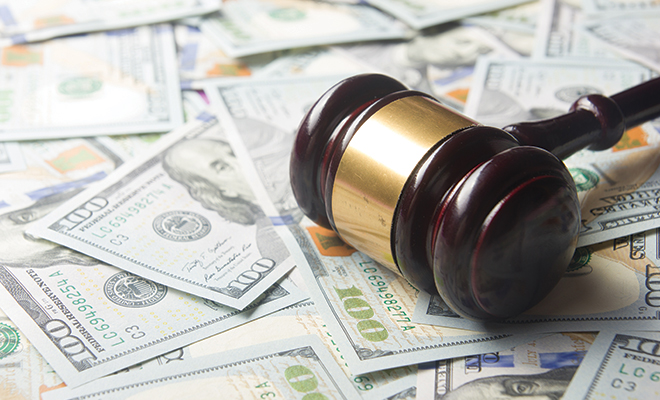
Is Bankruptcy an Option?
If you are drowning in unpaid bills, declaring bankruptcy may seem like the only relief in sight. However, bankruptcy can result in a myriad of unsavory consequences.
First and foremost, bankruptcy filing costs money because you need a lawyer; that can cost thousands of dollars and you still have to pay the court fees. Hiring an attorney is not required but it is highly recommended. Filing is a highly complicated process and few people end up successful without a lawyer. There are free legal services available if you can’t afford one. Contact the American Bar Association or the Legal Services Corporation.
Next, you must consider your credit rating if you will ever need to buy a car or house, or even rent an apartment. If you are interviewing for a new job, most companies will access your credit history and could deny you employment. Bankruptcy can stay on your record for up to ten years.
If your credit rating has always been good, it will probably take a major hit and drop very low. If it’s already low, it may not lower your score very much. The more open accounts you have on your credit report, the bigger the impact on your credit score. In other words, if you have opened several credit cards on your downward spiral and maxed them out, this will severely impact your score.
There are two types of personal bankruptcy filings, Chapter 7 and Chapter 13. Both are handled in federal court.
Chapter 7 is like a liquidation. Your major assets are sold or liquidated to pay off creditors. You may have the option of allowing your property to be repossessed or you can pay the creditor a lump sum equal to the current value of your property. To qualify for Chapter 7 filing, your income must be below a certain level. This type of filing will remain on your credit report for up to ten years.
Chapter 13 works more like a plan to repay your creditors. It’s known as wage earner bankruptcy. If you have any income left over after paying your monthly expenses, you must file for Chapter 13. Since you have an income source, you can propose a repayment plan to your creditors that pays them back over the next three to five years. Your debts are consolidated and reorganized to make it easier for you to handle and pay down according to your income after bankruptcy, not the amount of the debt owed. This filing will stay on your credit report for up to seven years.
An important note here: a bankruptcy filing will not discharge certain types of your debt such as past due taxes, debts for personal injury, debts owed for driving under the influence, student loans and spousal or child support. If this is what you are after, you may find a better way out than declaring bankruptcy.
However, under Chapter 13, some debts can be discharged that wouldn’t be under other chapters, including some taxes, some personal injury debts, and debts from property settlements during a divorce. Your lawyer will be able to navigate these waters with you.
One alternative to filing bankruptcy would be to level with your creditors and explain your hardship to negotiate a settlement on your own, without legal fees or court filings.
If you decide to go forward with bankruptcy, you will be required to receive credit counseling and debtor education. The credit counseling is done before filing and the debtor education happens after bankruptcy. Your lawyer will bring your certificates of completion to the courts before any of your debts can be handled. Next, you complete the bankruptcy forms listing all of your income, property value and a repayment plan. They are filed with the court and a trustee will be appointed to your case. Keep in mind this trustee is there to represent your creditors, not you.
If you are awarded a discharge, you are no longer legally required to repay some of your debts and those creditors cannot communicate with you or take any further action against you to collect. It could take about four months from the date your lawyer files to get your discharge when you file for Chapter 7. Chapter 13 cases may take several years to be discharged due to the repayment plans that can last three to five years.
At the end of this bankruptcy, try your best to adopt a new lifestyle that will work within a reasonable budget. Above all, do your best to bounce back from this unfortunate event. Even though bankruptcy will remain on your credit for up to ten years, you can recover quicker if you manage your financial obligations and periodically review your credit standing. ■
Sources: experian.com, fool.com and huffpost.com.







